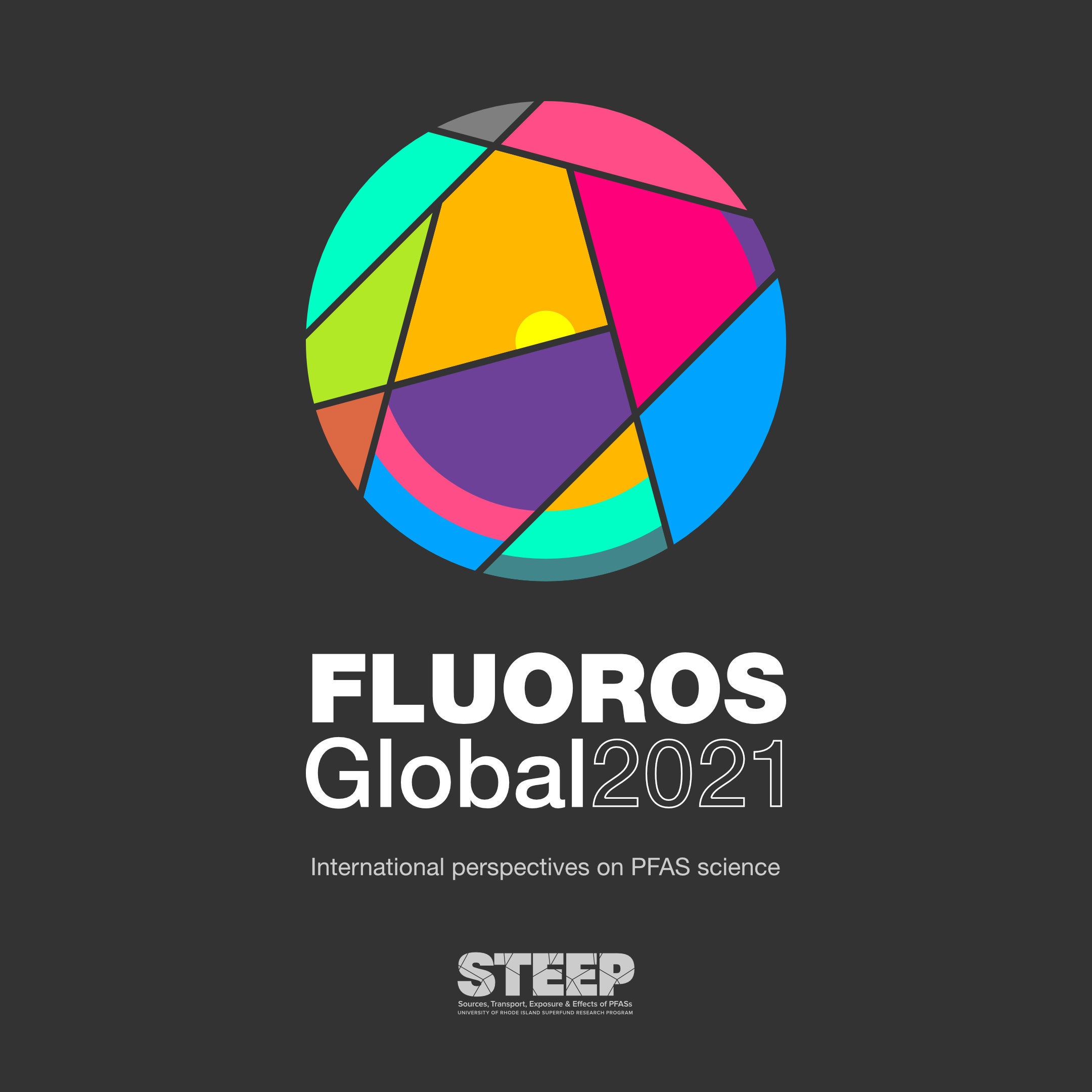NARRAGANSETT, R.I. – July 19, 2021 — A preeminent and international conference dedicated to sharing the latest science on PFAS, “silent” and dangerous chemicals often present in common household goods, industrial and military installations, is now open for registration. “FLUOROS Global 2021 – International Perspectives on PFAS Science” takes place October 3-7, in-person at the WaterFire Fine Arts Center in Providence, and virtually on-line. Registration is at https://web.uri.edu/fluoros/registration/.
PFAS is an abbreviation for perfluoroalkyl and polyfluoroalkyl substances, which are used in nonstick cookware, carpets, outdoor gear, food packaging and many other products. They are often referred to as forever chemicals because they don’t degrade naturally.

The symposium will consist of a series of regionally held half-day-themed events that showcase state-of-the-art PFAS knowledge and demonstrate the global dimension of the chemicals’ contamination as well as the ongoing and needed research to address the ubiquity of the problem. By holding a compact series of regional meetings around the globe, including in North America, Europe, Asia, and Australia, FLUOROS Global 2021 will also demonstrate a less-travel intensive way of achieving global collaboration as well as lessons in global cooperation.
“COVID-19, climate change, and PFAS are all prime examples of how international scientific collaboration is needed to address problems that do not respect national boundaries,” says University of Rhode Island Coastal Institute Director Judith Swift. “Cooperative efforts are critical to our future as a global community, and FLUOROS Global 2021 is an opportunity for us all to join together to address the PFAS challenge.”
The URI STEEP (Sources, Transport, Exposure, & Effects of PFAS) Superfund Research Program is a multi-organization effort—including Harvard University’s T.H. Chan School of Public Health and the Silent Spring Institute—dedicated to researching the effects that PFAS have on drinking water and human and natural environments, and to engaging the public in dialogue about steps that can be taken to remove or lessen the presence of chemicals in home and work settings.
Research shows that PFAS, a larger family of manmade chemicals, change tissue at a cellular level in people and animals and alters basic body functions, like metabolism and fat storage—processes critical to reproduction and overall health (Video series at https://web.uri.edu/steep/resources/media/).
PFAS can negatively affect the maturation of important organ functions and a major concern is the insidious threat of PFAS exposure to the immune system,” states Philippe Grandjean, co-lead of the STEEP Superfund Research Program and a member of the Harvard team. “In a time with widespread COVID-19 infections, a fully functional immune system is crucial.”
“Since it began in 2005, FLUOROS continues to provide an opportunity for an unbiased and multidisciplinary exchange of information regarding the latest developments and scientific advances on per- and polyfluorinated alkylate substances, or PFAS,” says URI Professor of Chemical Oceanography Rainer Lohmann, a lead STEEP researcher. “It’s critical that we come together to disseminate and understand the biomedical and environmental research advances we’re making on the PFAS front, so we can ultimately minimize both human exposure and environmental effects.”
Focus areas of the symposium are “Dealing with the Universe of PFAS,” “Global Transport and Fate,” “Remediation and Disposal,” “Ecological Effects, Vulnerable Species or Pathways,” and “Epidemiology and Toxicology.” In addition, posters will be displayed throughout the symposium, with dedicated time to allow poster presenters to interact with attendees. Trainees and student poster proposals are strongly encouraged. Only one poster is permitted per lead presenter. See the Call for Poster Abstracts.
FLUOROS conferences draw hundreds of attendees from the public, private, community and academic sectors and sponsorship opportunities at several levels ($500 to $5,000) are available.
“Sponsorship is critical to providing a unique and high-quality experience for participants who return to their research lab, regulatory agency or NGO with enhanced insight, new pathways for exploration, and potential ways to lessen adverse health impacts, address PFAS disposal, or reduce overall harm to humans and the environment,” says Swift. More information about sponsorship and the form can be found at https://web.uri.edu/fluoros/sponsorship/
FLUOROS Global 2021 is hosted by the University of Rhode Island STEEP (Sources, Transport, Exposure, & Effects of PFAS) Superfund Research Program and funded, in part, by the National Institute of Health Environmental Health Sciences in coordination with partners from the Harvard T.H. Chan School of Public Health and Silent Spring Institute.
For more about the FLUOROS Global 2021, visit https://web.uri.edu/fluoros/. For more information about STEEP, visit: https://web.uri.edu/steep/.
Media please contact Judith Swift at ((401) 524-1427) or jswift@uri.edu to set up interviews with members of the STEEP team organizing FLUOROS Global 2021.

